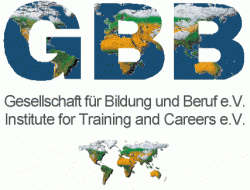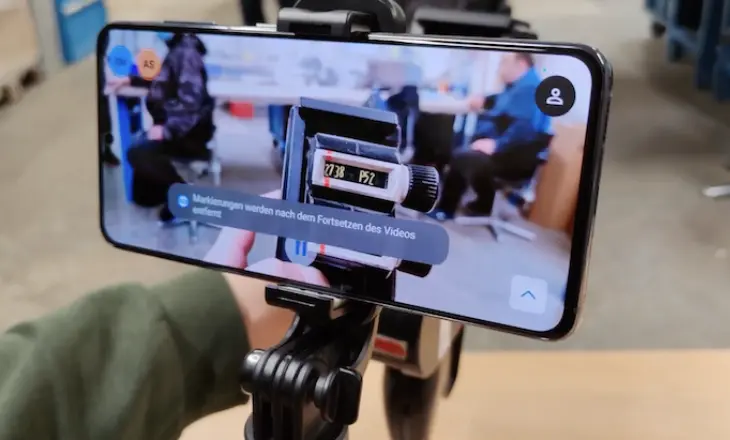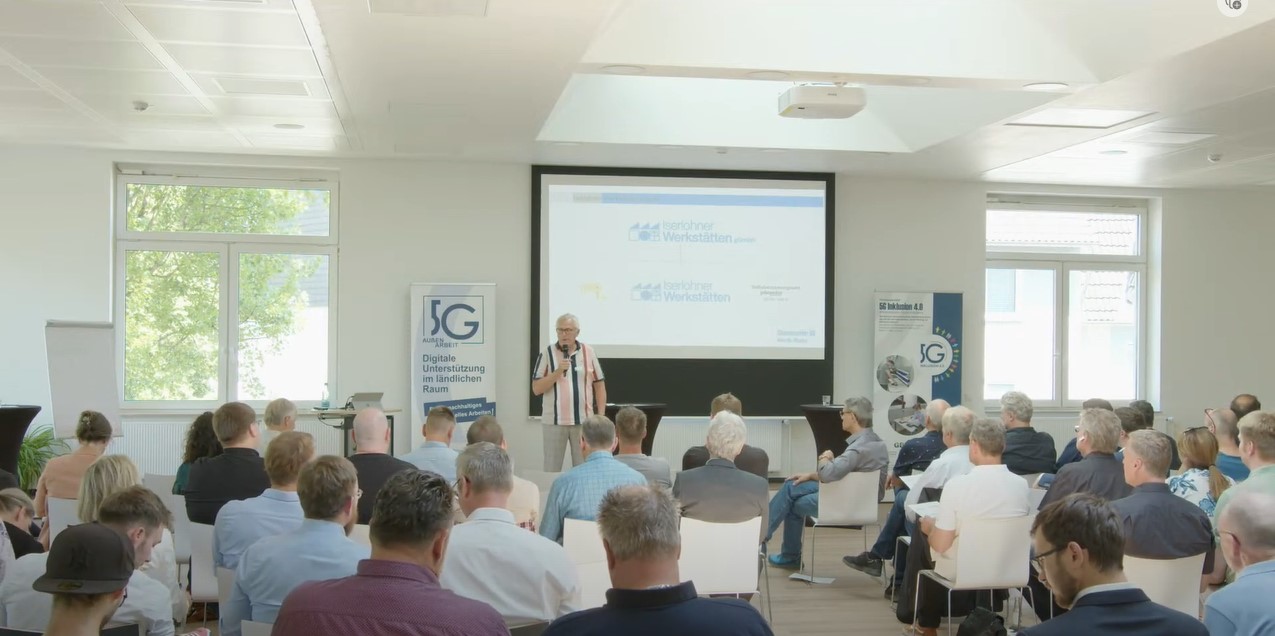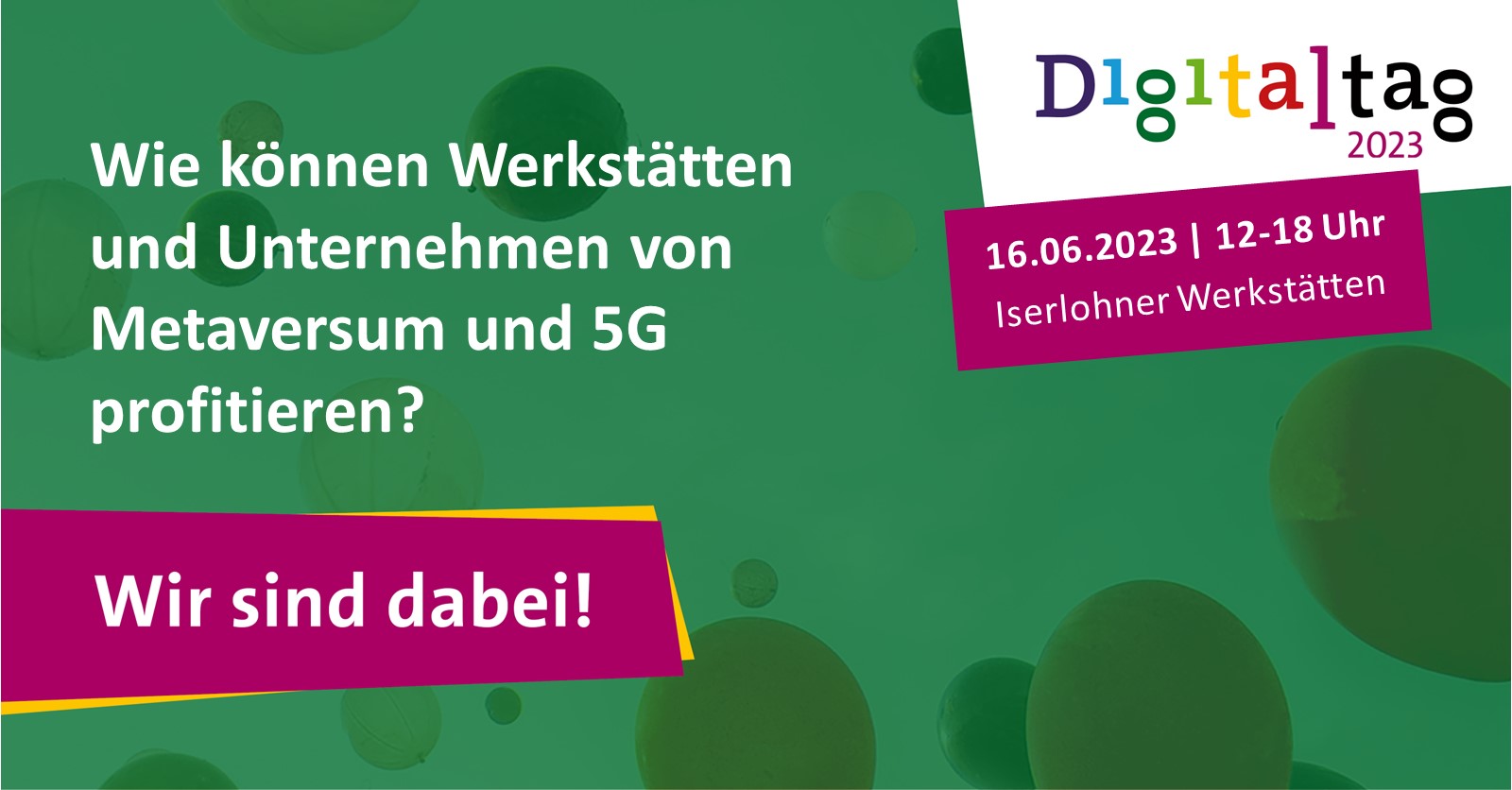How 5G can advance inclusion in the labor market
According to Article 27 of the UN Convention on the Rights of Persons with Disabilities, people with disabilities have an equal right to work. Germany is behind in implementing this right; as the statutory quota of 5 percent for the employment of people with disabilities is currently not being met. Whether and how knowledge-based assistance systems can advance inclusion is the subject of a 5G project that has now started in the Iserlohn workshops. Project partners are the Gesellschaft für Bildung und Beruf e.V. (GBB) Dortmund, the Iserlohner Werkstätten GmbH and the University of Europe for Applied Sciences, Campus Iserlohn. www.informationszentrum-mobilfunk.de spoke with Dr. Bärbel Winter, Head of Research in Digital Media at GBB, about the project, which has just started.
Which 5G-networked digital assistance systems will be used in the project?
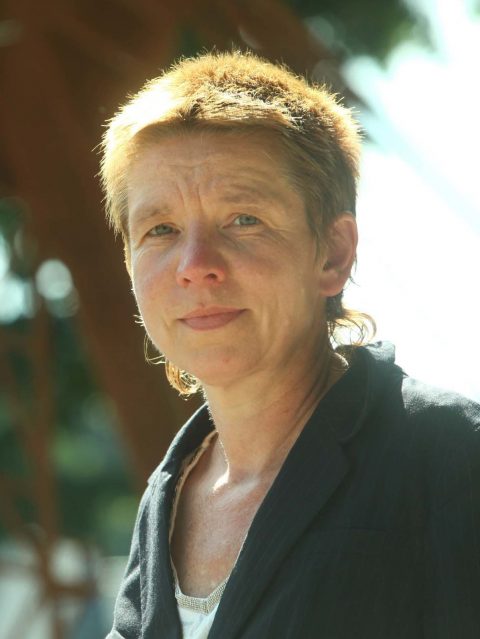
5G-capable XR glasses [1], tablets, smartphones, and notebooks are used in the Iserlohn workshops. We are continuously monitoring the market of 5G-capable devices,e.g., 5G-enabled smartwatches, and similar toolsthat are worn by or on humans. During the project, we will then also test other market-new digital assistance systems in a staggered manner. These systems will be networked via a 5G campus network and offer the potential for decentralized support for people with impairments through modern, complementary knowledge management systems.[1] This refers to the computer-based augmentation of reality perception. With the help of such glasses, further information about objects in the real world can be superimposed in front of the eyes.
How can people with cognitive impairments benefit from this?
In this project, the previous technological limits of networked assistance systems are surpassed, and for the first time, synchronized forms of knowledge management are innovatively connected with intelligent devices at decentralized work locations. I would like to illustrate this using the example of a pilot project that we are conducting in the area of assembly:
When a problem arises in the production process, people with cognitive impairments need the support of a specialist or group leader who, for example, assists with the work task. However, this person is sometimes not available in terms of space, so the work process comes to a standstill. The pilot project is testing how 5G-capable AR glasses can be used to establish a connection to the specialist or group leader. The specialist or group leader sees the assembly area mapped on their 5G-enabled smartphone and aids the employee, while simultaneously seeing how this person performs the task. Synchronous feedback occurs, and downtime is reduced. At the same time, the digital competence of people with cognitive impairments increases.
Why is 5G needed for this?
In production environments in particular, for example, online networking has hardly been possible up to now. We need robust, stable connections to be able to transmit real images live. This is important, among other things, because one goal is to place these people in outside jobs in the primary labor market. They need just-in-time help from their group leaders or other colleagues.
What are the challenges?
One challenge is certainly to show companies not only the technological possibilities of 5G but in particular the associated social-integrative aspect. To this end, we are currently setting up a demonstration environment in Iserlohn to illustrate such aspects and engage in an exchange with stakeholders. From the second quarter of 2022, if the pandemic situation permits, we will invite companies, workshops for the disabled, as well as representatives from politics and society to gain insight into our „5G RealLabor Inklusion 4.0“ project . It is important to remember that we are carrying out currently a unique project in Europe in the field of assistance for the disabled and are pleased to have received support from the state of North Rhine-Westphalia. And that we have found an innovative practical partner with the workshop for people with disabilities in Iserlohn.
Where do you see the greatest potential?
In addition to technical possibilities and opportunities to increase acceptance, I see the greatest potential in the integration of 5G-based assistance systems in other typical work activities such as metal and wood processing, logistics, care, catering, gardening and landscaping, packagingand order picking, among others. With this project, we want to contribute to the 5G technology and knowledge transfer for the state of North Rhine-Westphalia and beyond. Therefore, our project is continuously evaluated by the University of Europe for Applied Sciences (Iserlohn) and processed research results are transferred. On the one hand, these will be presented to interested companies, workshops for people with disabilities, multipliers, and stakeholders in the 5G RealLabor Inklusion 4.0, and on the other hand, we will also organize a scientific symposium to present, discuss and reflect on our results in the field of research and development.
What collaborations are necessary for the implementation of this project?
Early on, we set up a project support group consisting of around 20 members from companies (users and providers), science, politics, workshops for people with disabilities, chambers of commerce, and funding agencies. This group regularly reports on and discusses the technological progress of the 5G Innovation Project from the perspective of the participation of people with disabilities and supports the transfer of knowledge on the part of the members.
Within the framework of transfer events, we conduct webinars, among other things, in which we present the project „5G Knowledge-based Assistance Systems Inclusion 4.0“ and work on it under various focal points. Important cooperation partners are the Network Inclusion 4.0 and its stakeholders with expertise from the fields of digital assistance and IT, user companies and workshops for people with disabilities, associations, and business development, as well as the Mittelstand 4.0 Competence Center eStandards, which contributes additional expertise on standardization.
Currently, we have also been asked by the Association of German Chambers of Industry and Commerce to present the project as part of the 5G@Mittelstand roadshow.
Another important partner is the 5G.NRW Competence Center, which manages the projects from the 5G.NRW funding competition. These and our project are only possible thanks to funding from the Ministry of Economic Affairs, Innovation, Digitalization and Energy of the State of North Rhine-Westphalia combined with the project sponsorship of Forschungszentrum Jülich GmbH.
The original interview is published in German under the title „Wie 5G die Inklusion in den Arbeitsmarkt voranbringen kann.“ and can be read here: https://informationszentrum-mobilfunk.de/artikel/wie-5g-die-inklusion-in-den-arbeitsmarkt-voranbringen-kann
